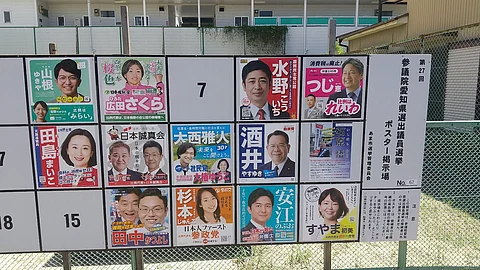

Japan’s ruling coalition, led by Prime Minister Shigeru Ishiba, is projected to lose its upper house majority, exit polls from Sunday’s election indicate.
The Liberal Democratic Party (LDP) and Komeito needed 50 seats to retain control of the 248-seat chamber, with half the seats contested.
NHK’s exit poll predicts the coalition will secure 32 to 51 seats, potentially its worst result since 1999.
This follows the LDP’s significant lower house loss in October, increasing pressure on Ishiba’s minority government.
Japan faces a critical August 1 deadline for tariff negotiations with the United States, adding urgency to the political instability.
Surging prices, especially for rice, have sparked voter discontent, boosting opposition parties advocating tax cuts and public spending.
The Constitutional Democratic Party is projected to win 18 to 30 seats, up from 22, according to NHK’s exit poll.
The far-right Sanseito party, pushing an anti-immigration “Japanese First” agenda, is expected to gain 10 to 15 seats, up from one.
“The LDP was largely playing defence in this election, being on the wrong side of a key voter issue,” said David Boling of Eurasia Group.
The LDP’s focus on fiscal restraint, amid Japan’s massive debt, has clashed with public demands for inflation relief.
Sanseito’s campaign has resonated with some, amplifying concerns about foreigners in Japan’s aging society.
“When I look at the way compensation and money are spent on foreigners, I think that Japanese people are a bit disrespected,” said Yu Nagai, a 25-year-old Sanseito voter.
Meanwhile, Yuko Tsuji, a 43-year-old consultant, backed the LDP to counter xenophobia and promote stability.
Daiichi Nasu, a 57-year-old self-employed voter, supported the opposition for progressive policies like open immigration.
Ishiba, facing internal party pressure, vowed to continue leading, prioritizing tariff talks to safeguard Japan’s economic interests.